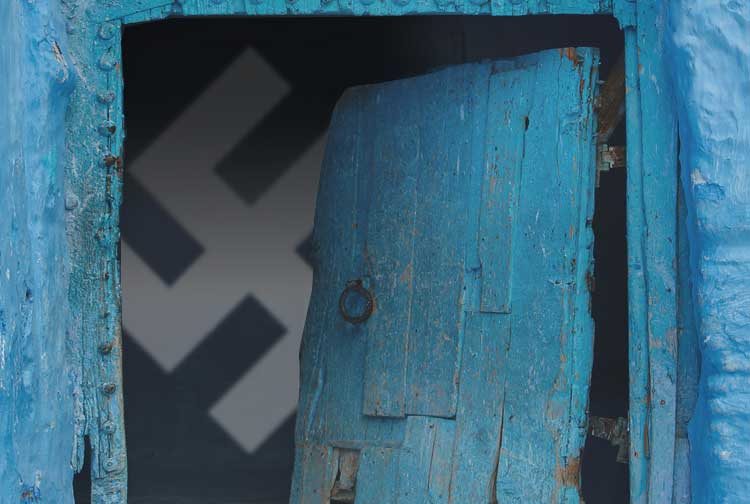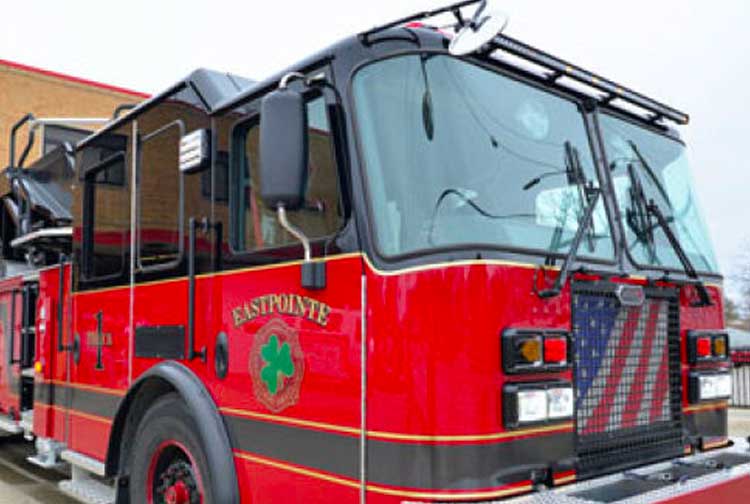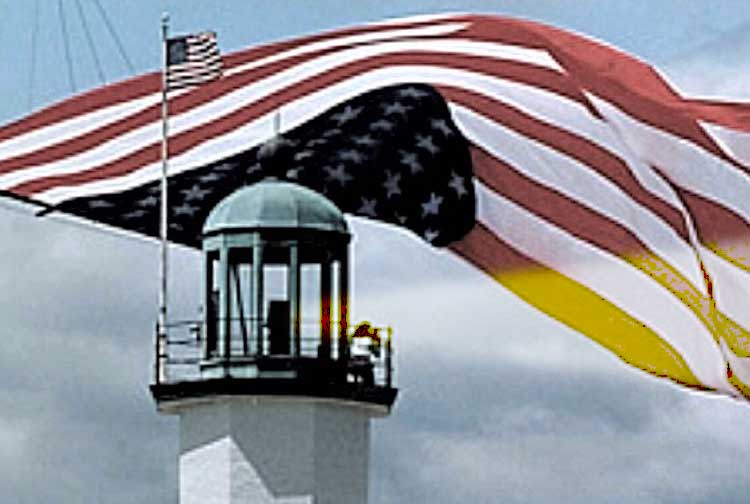And: how understanding Fascism motivated us to
Build the Strategy to Win the Present and the Future.
(Editorial note: my capitalizing Fascism and Democracy speaks to the high stakes battle for our minds and souls, and how the predominance of one over the other makes dealing with additional existential crises — climate, war, genocide, pandemics, poverty — that much more doable or difficult. And here, again, is my working definition of Fascism: https://fightfascism.us/2022/09/)
It’s not too late, though the clock is ticking louder with each passing minute. Wake up, America! Wake up to the Fascism looking to destroy our fundamental freedoms! See it, say it, define it, defeat it!
As a child, I was tormented by a recurring nightmare where, while playing alone in our family’s front yard, facing the street, I turn to my right to see a T-Rex ominously approaching, from maybe 100 yards. I immediately run inside our house to warn my parents, my two older sisters and little brother of the imminent danger. I open my mouth to shout “Get out!! Run!!” – but no words come out. Only silence. I dash to the front window only to see the T-Rex getting much closer, now heading directly for our house. Again, I helplessly try to shout “Get Out!! Run!!” Just then, I wake up in a pool of my own sweat.
My sense of powerlessness exhibited by this re-run night terror amounted to being able to see it, but not being able to say it, define it, or defeat it.
Maybe you had a similar nightmare scenario during your childhood, adolescence, and beyond. Even if you didn’t, I hope you can stretch the metaphor to have the rapidly approaching Fascist Trump dictatorship stand in for the menacing T-Rex. After all, fans and lovers of Democracy, what we’re living through now is no less terrifying.
Not coincidentally, I’ve spent a lifetime working on social justice causes, both to overcome those feelings of paralysis and to fulfill my larger purpose of improving the lives of the vulnerable and those unjustly treated – the exact opposite of Fascism. But to do the work effectively, I’ve had to see them, say them, and define them – justice and injustice, freedom and tyranny, Democracy and Fascism – before I could work effectively with others to develop strategies to realize the opportunities or overcome the threats.
By observing, inquiring, studying, researching, exploring, hitch-hiking, traveling, writing, teaching, canvassing, laboring, union organizing, military draft counseling, directing issue and electoral campaigns, running for the United States Senate, working with others, I have/we have been able to move the needle forward on a range of pro-Democracy principles and policies. All told, I’ve been a part of many more wins than losses, due mostly to the see it, say it, define it, solve it methodology.
So, after a lifetime of winning electoral, issue, and labor campaigns, why and how, in 2025, are we sliding rapidly into a Fascist dictatorship under Trump 2.0? I have several ideas, but first…
…here comes the humbling part: the realization that I had it wrong, or at least mostly wrong until about five years ago.
First, I am convinced a form of self-delusion gripped me, along with almost all of my politically active Baby Boomer peers, as the idealistic 60s gave way to the more hedonistic, cynical, and narcissistic decades to follow. Even with the deeply traumatizing assassinations of JFK, Malcolm X, MLK, and RFK, we kidded ourselves into believing Martin Luther King’s aspirational assertion that “The arc of the moral universe is long, but it bends toward justice.” As if social progress is somehow preordained and that the universe is, in fact, moral, when, over the last 50+ years, American society has bent more toward injustice than justice. That’s a gut punch.
Second, fast-forwarding to 2018, and accelerating with the early 2020 pandemic onset, I’ve come to realize, through the prism of several personal, professional, and health crises, that the “successful efforts” I mentioned above – issue and electoral and labor wins – were narrowly tactical in nature; that those victories I contributed to, while important, were de-linked from a larger process of strategic visioning, comprehensive assessment, detailed planning, and preeminent commitment to unity and universal justice.
By contrast, the right-wing “dark vision” for America gained ground in an ongoing, seven-decade, disciplined, strategic planning and implementation process that has culminated in a perfect storm of destruction – centered on an evil – yes, evil, the most evil and diabolical – ideology: Fascism, the definition of which I call the “Three Cornerstones of Fascism”: State-Corporatism, White Supremacy, and Christian Nationalism, plus 28 toxic characteristics – funded and fueled by sociopathic billionaires. (The best treatment of the right-wing origins story is Nancy MacLean’s Democracy in Chains: The Deep History of the Radical Right’s Stealth Plan for America. Many more resources for this and other related topics can be found at our new website domain: https://fightfascism.us).
Now come along for a brief ride into the future – a ‘radically visioned’ future – a process that will allow us to look back at how we defeated the (2021-2027) U.S. Fascist coup and dictatorship (now nearing completion), and how we wrestled to the ground the right-wing authoritarianism smothering 72% of the world’s people. (Varieties of Democracy Institute at the University of Gothenburg). And then see how, emerging out of deep crisis, we catapulted ourselves and our global sisters and brothers to a transcendent society based on principles of universal justice and fundamental rights.
From our future utopian retrospective view, therefore, we know what people first had to do in early 2025: emphatically and purposefully see, say, and define the billionaire-funded and billionaire-fueled dystopian American Fascist takeover before we could develop the future utopian vision to develop the focused, disciplined, and inspired strategic plan to crush the cruelest, most cynical, violent, hateful, divisive, manipulative, propagandistic, racist, misogynist, xenophobic, imperialist, corrupt, scapegoating, law-breaking, election-stealing, war-mongering, anti-freedom, anti-life, anti-democratic, anti-constitution, anti-union, anti-individual, anti-opportunity, anti-privacy, anti-education, anti-intellectual, anti-artistic, anti-environment, anti-free press, anti-queer, anti-logic, anti-fact, anti-science, anti-secular ideology in human history.
So, returning to the present, is it any wonder that most people are so surprised, shocked, confused, bewildered, and overwhelmed by the “Firehose Fascism” of the first six weeks of the second Trump regime? From reliable sources we were told that all of this was coming. There is nothing ambiguous or unclear about the intentions and purpose of the ongoing Fascist coup (overthrow) of our American Republic, which began on 6 January 2021.
That said, we must now – urgently and with laser-focus – face up to what is definitively and starkly real: the arrival of U.S.-style Fascism in Trump’s White House 2.0.
This is a 21st century American Fascism with roots in the ancient past (the Roman Empire), the Italian Renaissance (see Machiavelli’s The Prince [1532] which prescribed the amoral “ends justifies the means” justification to acquire, consolidate, and expand power by any means necessary), the French Revolution’s Reign of Terror (1793-1794), the European-American genocidal extermination (90-95%) of Native Americans (1492-1887), the British-American 250-year enslavement and 100-year Black Code and Jim Crow oppression of Black Africans, Black Caribbeans, and Black African-Americans (1619-1965). To say nothing of the attacks on, and denial of full citizenship to women, exploitation of child laborers, Asian and Brown immigrants, disabled, queer, and impoverished people.
The rise of modern American-style Fascism has been building since Benito Mussolini captured Italy in 1922, Emperor Hirohito led Japan out of the 1931 Manchurian crisis-military coup, and Adolf Hitler dissolved Germany’s Weimar Republic in 1933. Fascist Italy, Japan, and Germany would go on to sign the Tripartite Pact (1940), which established the wartime Axis Alliance, and which the Allied Powers defeated by 1945.
Concurrently, the pro-Fascist Wall Street corporatists nearly took down FDR in a 1933-1934 coup, documented in the Congressional Record of 1934 and in Jules Archer’s The Plot to Seize the White House, and might have taken down FDR in 1940-1941, through the Lindbergh-led America First Fascists, if not for our nation’s forced entry into the Second World War. After a brief period of peace and hope following the war – most notably with the unanimous United Nations passage of the Universal Declaration of Human Rights on 10 December 1948 – the US-Soviet Cold War quickly ensued and lasted until the dissolution of the USSR on 25 December 1991.
Domestically, the 1954 Brown decision of the Supreme Court that sought to end our Black-White racialized system of apartheid (segregation), known as Jim Crow (1877-1965), also ignited the contemporary emergence of the Fascism that now threatens what remains of our wilting and anemic Democracy. The best treatment of the mid-1950s origins story is Nancy MacLean’s Democracy in Chains: The Deep History of the Radical Right’s Stealth Plan for America (2017). In it, she describes with painstaking research, the blueprint crafted at George Mason University, its winding advance, Nixon’s endorsement of the corporatist/proto-Fascist new iteration, in the form of the (Louis) “Powell Memo” of 1971.
After that we see, through Jane Mayer’s Dark Money: The Hidden History of the Billionaire, the entry of the right-wing Koch brothers-financing of the “Powell Memo” blue print, the rise of neo-liberalism, neo-conservatism, the Christian Nationalist “Moral Majority” who backed corporatist-racist-neo-lib Reagan, neo-lib George H. W. Bush, neo-lib Bill Clinton, neo-lib and neo-con George W. Bush, neo-lib and neo-con Barack Obama, and neo-con Joe Biden (who mostly curtailed his previous neo-lib tendencies while president).
Now, given 47’s recent statements and steps away from Ukraine and NATO, trade wars aimed at our northern and southern neighbors (and China), calls for invading Mexico and absorbing Canada, Greenland, the Panama Canal, and Gaza, and the aforementioned WW2 three-way coalition (past is often prologue), there is considerable evidence to suggest that billionaire, billionaire-backed and wannabe Fascist dictator Trump, billionaire and billionaire-enabled Fascist dictator Putin, and near-billionaire and billionaire-friendly Fascist dictator Xi (despite 47’s tariffs on China), may be on a path to form a new imperialist Axis Pact to annex desired territories and resources (materiel and human), perhaps share new technologies, and crater economies to benefit the global oligarchy’s insatiable appetite – all while impoverishing, sickening, enslaving and exterminating even more of the world’s population.
Unless they are stopped and reversed, which, fast-forwarding to 2027, they were!
Enough of us woke up in time to reverse the curse, to defeat the Global Fascist cabal which did plenty of damage for two years until the resistance and countercoup succeeded, first, here in the United States and then across the rest of the authoritarian nations over the next twenty-one years. By 2048, all nations came together to ratify a new Universal Declaration of Human Rights, but this time they committed to its full implementation, which was accomplished by 2060.
Starting in the United States, how and why did the counter-revolution succeed? In summary, we built a coherent strategy that unified us in purpose, focus, and renewed commitment to our highest ideals. What did the strategic steps look like? (In the interest of brevity, the following is the scaffolding — strategic support system — with many more details to spill forth in coming essays.)
1. We radically envisioned the future success, the universal justice by 2060. All power to human spirit, imagination, creativity, hospitality, hope, and love.
2. We reverse-engineered (understood in reverse order) the winning strategy and the strategy-driven tactics that drove our success.
3. We learned that strategy is the recipe and tactics are the ingredients. Our tactics — steps, actions, events — proved successful because they always answered the key question in the affirmative: does this step, action, event, etc., make sense strategically?
4. We engaged in an honest assessment of strengths-weaknesses-opportunities-threats (SWOT) as applied to our bottom-up pro-Democracy movement and the top-down billionaire-driven Fascist . Moreover, we identified, defined, and understood our opponents, our non-supporters, and our supporters, and learned how best to deal with each.
5-7. We came together as People, we creatively practiced Politics, and we grounded ourselves in justice-centered Policies.
5. For the People part of the equation, we built deep relationships based on respect, trust, hope, empathy, and inclusion.
6. For the Politics part, we adopted a horizontal organizing model that got us out of our issue “silos,” created an ethos of co-equality, and centered on proven practices (see nvdatabase.swarthmore.edu) and fresh ideas that inspired action, unity, and mutual support.
7. For the Policy part, we built solidarity around both ‘daily justice’ issues (housing, food, income) and ‘existential’ issues (climate, democracy, public health).
8. We developed new leadership and decision-making practices that brought new voices to the front and bottom-up principles to the ballot.
9. Our Internal Communications improved with intentional and clear practice: say what you mean, mean what you say; we identified and used secure platforms; we repeated and reinforced key messages; we deeply respected, listened to, and empathized with one another.
10. Our External Communications centered on shared values and ideas, power of story, thoughtful choice of language, head and heart, peer-to-peer, earned media, paid media, social media, and non-media (door-to-door, events, rallies) platforms. Knowing our audiences, we elevated the conversation with emphasis on what unites us as human beings.
11. Our Organization embraced a model of bottom-up decision-making, as our workplace culture focused on our mission, vision, planning, resources, roles and responsibilities.
12. We built effective systems of Accountability to monitor and adjust our work practices, staffing, resources, and human relations, as we measured, quantified, and qualified our goals with critical questions and regular evaluations.
13. We embraced an expansive understanding of what Development is: fundraising, in-kind resources, volunteers, distribution, management, solidarity housing, meals, and travel.
14. We built Timelines to focus our efforts on winning short-, mid-, and long-term goals. Small victories built upon bigger victories built upon breakthrough victories — all of which created momentum, boosted morale, fostered cohesion, solidarity, unity and a sense of invincibility.
15. We brought all of the above elements – and more – together, as we built the mass movement on the “outside” — in the streets, in the suites, offline and online, in rural, suburban, x-urban, and urban America — to prevail on the “inside” – in all capitals, county, state, and national, as we shared our successful strategy with sisters and brothers across the globe.
Yours in radical hospitality, hope, love, and informed, coherent, and intentional strategy,
Chuck Pennacchio




